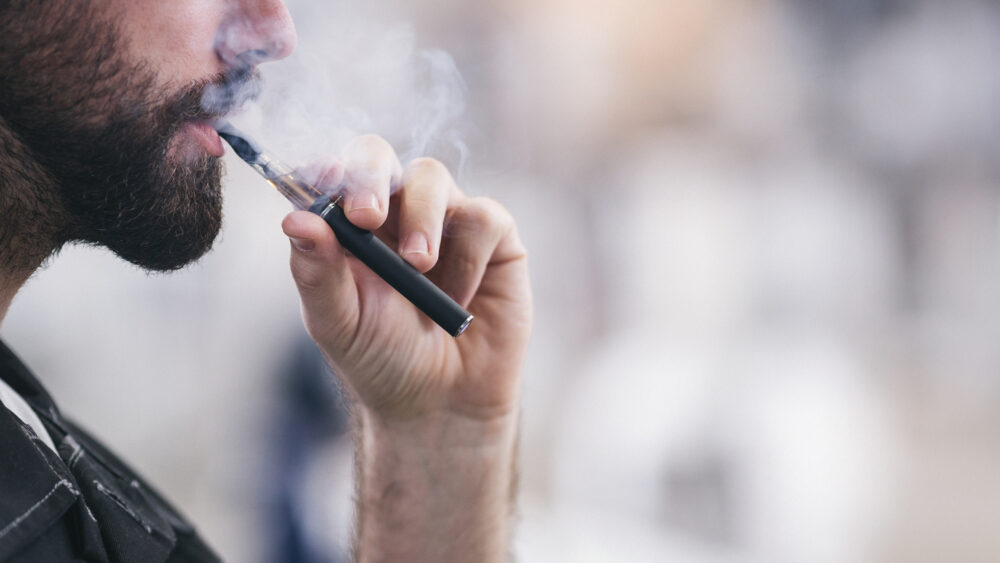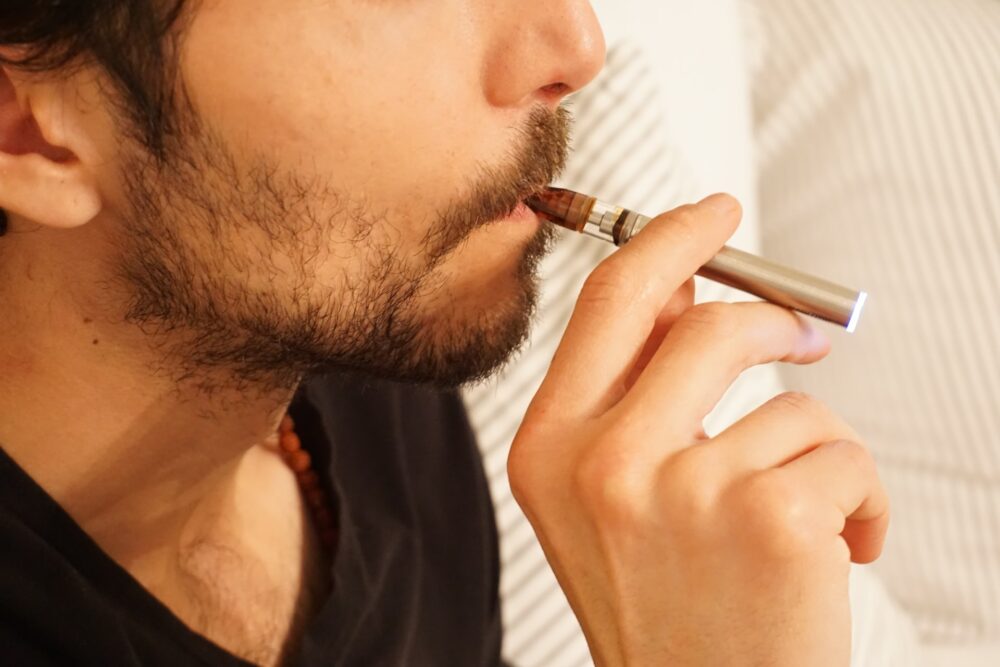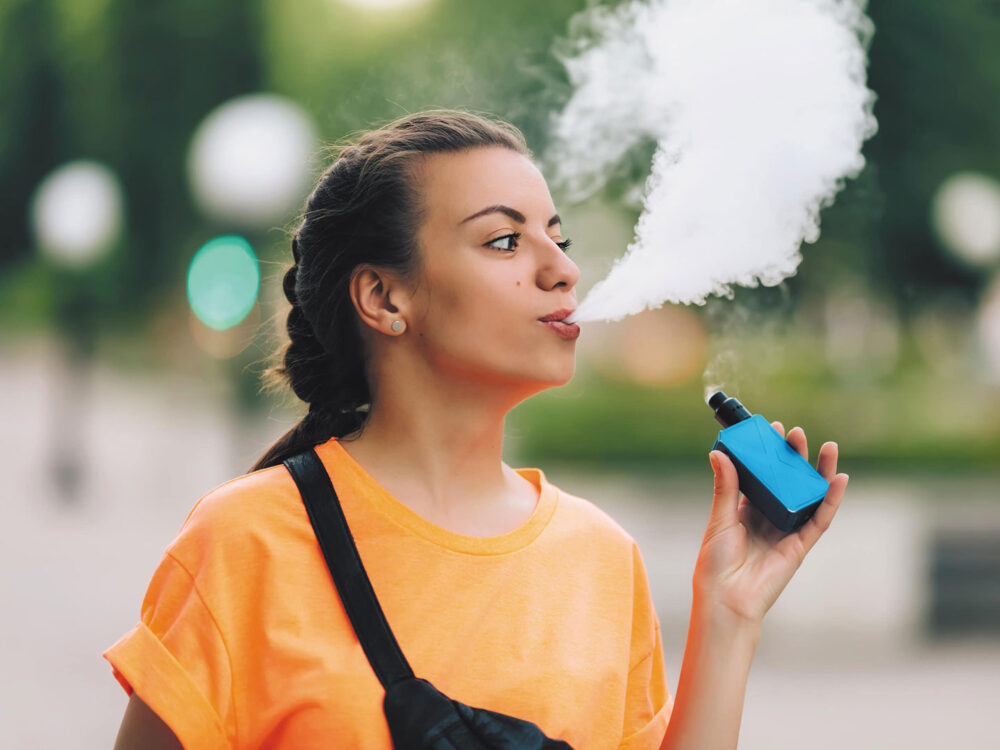People around the world know e-cigarettes by distinct names. Some call it to inhale pen, mod, tank system, e-cigs, or e-hookah. These items are accessible in so many forms and sizes that every model looks different from the other. You must have come across stories on the internet claiming how safe e-cigs are to use and the ideal way to help smokers quit their addiction.
If you’re above 18 years of age, you can purchase quality vapes at affordable prices from vapeking.com.au.
But always keep in mind not to believe whatever you see or hear, especially on the internet. You must wonder what could possibly be wrong with them as they are a vapor, right? But doctors and researchers have something else to say about them.
Although vapes are less damaging to human health than conventional ones, they still pose threats. When you do it, the aerosol is released into the atmosphere, which by the way, is NOT water vapor. This smoke has nicotine which affects brain growth among teens and other chemicals that makes a person prone to lung sickness, cardiac failure, and cancer.
Has the Australian Government Legalized E-cigarettes in 2024?

Source: ukhsa.blog.gov.uk
Vapes are yet new in the market, and a lot of research is yet to be conducted to determine whether they are secure or not. Companies claim these devices are safer than regular cigarettes, but we can’t be sure about it. Its lasting results are yet to be proved, but one thing is clear – Vapes are not for good schoolers!
Companies to manufacture e-cigarettes must follow the guidelines issued by the FDA (Food and Drug Administration). But for all Australians, the new rules are different. Their Government has imposed specific strict regulations on these potentially-harmful items, which has made it illegal for citizens to buy and sell them without a doctor’s prescription. It has been prohibited to sell a vape or a liquid meant to be smoked (even if it does not contain nicotine) to children under 18 years of age in Victoria.
The Australian Government has declared that from 1 October 2024, the country’s citizens will need a prescription to access e-cigarettes legally for any purpose. The regulations concerning importing these products from overseas have also been changed. According to the new Australian state and territory laws, it is illegal to store or sell e-cigarettes containing nicotine.
But there are a few exceptions, that includes:
- Special circumstances; and
- If supplied under a prescription.
Nicotine vaping items consist of salt or base in a solution, warmed using a vaping instrument to generate aerosol. The items thus formed when the nicotine undergoes the above procedure are:
- Nicotine Pods
- Nicotine E-cigarettes
- Liquid Nicotine
The Australian Government is taking serious steps to restrict the consumption of harmful items among the youth because between 2015 and 2019, a significant rise in their usage was observed. It has been observed that vaping acts as a getaway to smoking for the younger generation, so they are inclined to consume it, causing health problems.
These law changes aim to strike two birds using one stone – preventing young people from consuming nicotine products and permitting current smokers to consume them only on doctor’s advice.
The researchers are not sure whether it is safe to use e-cigarettes or not, but the one thing they are sure of is that these items are made of harmful products that might not show immediate effects, but in the long run, human health will be affected. Diseases like cancer result from tobacco consumption, but there are other causes also. Some conditions take an extended time to develop. These factors have made it hard for them to conclude.
What are the Smoking and Tobacco Laws in Australia?

Source: unsplash.com
- The Tobacco Advertising Prohibition Act 1992 prohibits advertisements persuading the citizens to smoke or utilize items having tobacco. The state and territory governments have separate laws banning tobacco advertising, sponsorships, and retail exhibits.
- The Tobacco Plain Packaging Act 2011 permits the trading of tobacco items only in plain packages. It implies that the cover must not contain a design, brand logo, or a punchline. Instead, it should have a simple, solid color.
Harmful Chemicals Found in Vape Pens and E-cigarette Vapor:

Source: CBD Oracle
- Propylene Glycol: This item is commonly utilized in producing a theatrical fog that has proven to grow the peril of lung failure and respiratory issues after prolonged exposure.
- Flavoring Material: Artificial flavors are commonly found in foods, but some flavorings are more harmful than the rest. According to various studies, certain flavors contain diacetyl, a primary culprit behind bronchiolitis obliterans.
- Volatile Organic Compound (VOC): Although VOCs are generally considered secure to consume, prolonged exposure may irritate the eyes, nose, and throat. It also causes nausea headaches and harms the liver, kidney, and nervous system.
- Formaldehyde: Some people like dry-puff, formed when the e-liquid overheats or an inadequate amount of liquid reaches the warming item. But it leads to the creation of formaldehyde, a cancer-causing thing.
- Nicotine: Nicotine is responsible for making tobacco items addictive, and it exists in all such items no matter how much a brand says that their things are nicotine-free. It is dangerous for developing babies, children, and young adults as it harms the evolution of brainpower.
Although vapes contain fewer toxins than cigarettes, they still contain harmful items. If you stay near a person using an e-cigarette, it will also expose you to cancer-causing particles. It has also been proved that some of the chemicals in vape aerosols cause DNA failure. They do not produce tar as done by conventional cigarettes, but it indirectly affects your health.
To Sum Up
As there are no approved vaping products in Australia, the doctor will have to apply to the TGA (Therapeutic Goods Administration) to access the unapproved drugs. After obtaining permission, you can get the products from a pharmacy or import them. If you are traveling into Australia, you must also carry a doctor’s prescription or check to meet the traveler’s exemption.


















